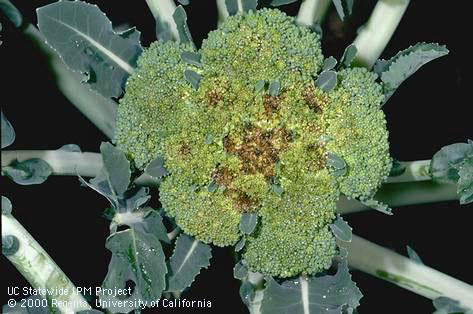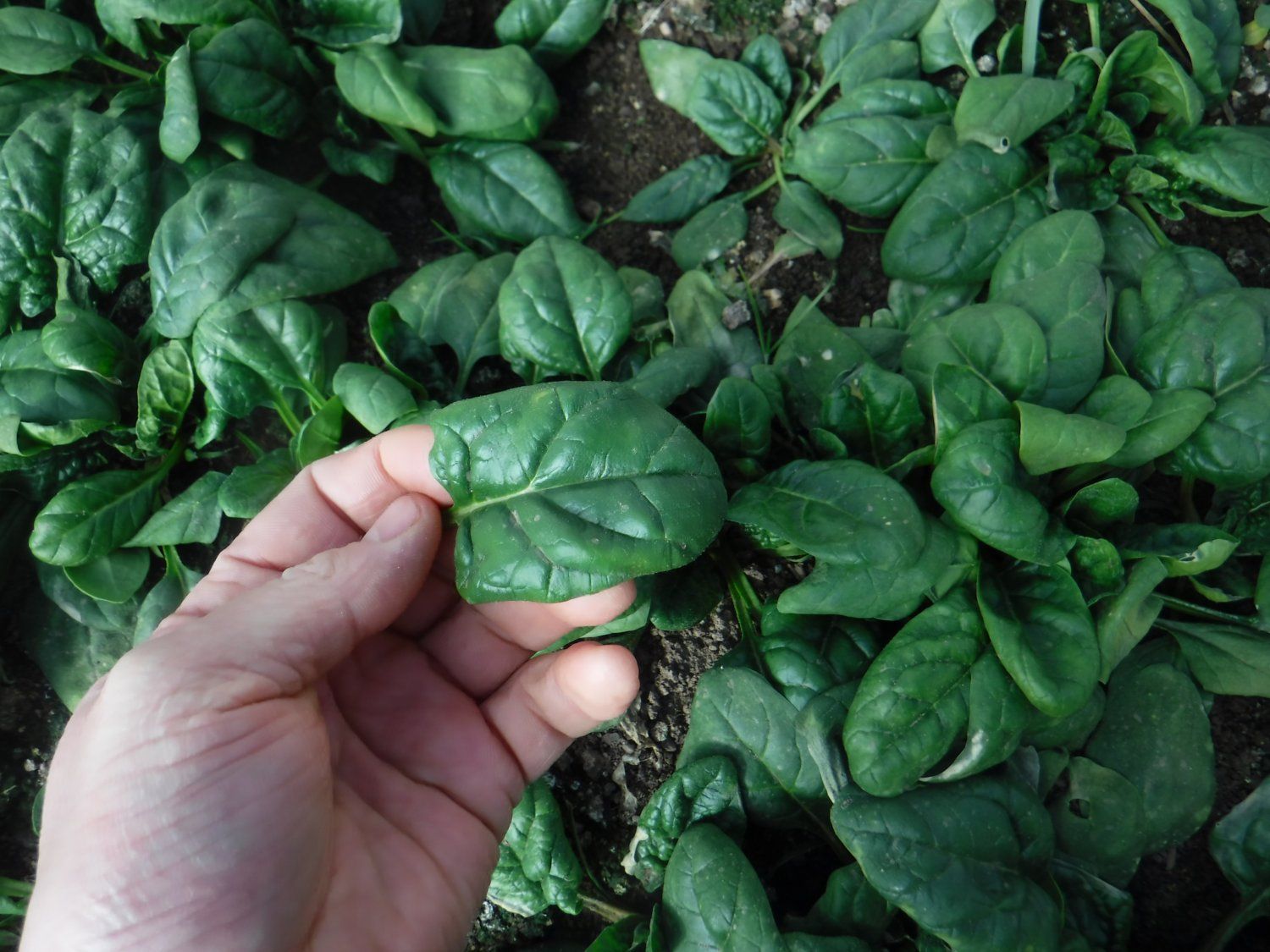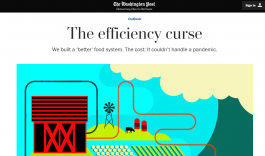Well, winter is really here now. I sure hope you are staying warm! It's so cold that the outside door to the microgreens room has been frozen completely shut lately, so to get in/out to water I have to use the side door inside the garage! One of the hoophouse doors has drifted mostly over with snow now, but we won't have to get in there for a few more weeks, so the snow will just help insulate the place until the winter spinach inside has started to regrow. In fact, I even shovel snow around the door of the root cellar on purpose during these cold snaps to help seal off any drafts and provide additional insulation.
Before I go any further, I have some exciting news to share: Bayfield Foods was referenced in a Washington Post article entitled "The Efficiency Curse" by none other than food writer Michael Pollen! In the article, Pollen talks about how our centralized food system is so efficient UNTIL it is disrupted by something like this Covid virus, then the massive infrastructure can't adapt very readily.
Here's a link to the article: https://www.washingtonpost.com/outlook/2021/02/05/pandemic-food-resilience/?arc404=true
Smaller farmers are doing relatively well. According to Civil Eats, farms with existing CSAs have seen “a massive increase” in memberships since the start of the pandemic, with some reporting a 50 percent bump in sales. One California farmer said, “It took a pandemic for people to support local sustainable agriculture again, and home cooking, and ‘know your farmer.’ ” Some restaurants helped set up CSAs for their vendors when they realized they wouldn’t need to purchase as much as they did during normal operations. Other farms have banded together during the crisis to form new multi-farm CSAs or producer co-ops. In Wisconsin, 18 farms banded together to set up a web-based ordering system for CSA customers to order specific products they wanted, rather than filling up a whole box; they’d discussed this before, but the pandemic pushed them to make it reality.
That 18 farm CSA cooperative in WI? That's US!! The web-based ordering system link embedded in the article takes readers to a Reuters article we were featured in from last spring about how small farms are adapting to the pandemic. In that article, we had just started the Farmstand home delivery program, offering one time boxes of meat, produce, and other products after CSA shares ended in March and before the new CSA season was slated to begin in June.
Here's that link too: https://www.reuters.com/article/us-health-coronavirus-farming-trfn/farmers-prosper-in-pandemic-as-americans-shop-local-idUSKBN22C2YX
Pollen wraps up his Post article with this:
“No Farms, No Food” and “Know Your Farmer,” the bumper stickers of the sustainable-food movement, now seem freshly relevant. But the values embodied in those words apply to much more than farms and food: They apply equally well to the essential and front-line workers many of us never noticed before but whose well-being can no longer be separated from our own. It turns out we’re all in this leaky boat together, so, like it or not, we’d better start building systems and supply chains resilient enough to withstand the shocks to come.
We're mighty proud to be helping spread the word out about small farms and CSAs, and you should be too! Changing the food system, one bite at a time. Nice work, team!!
Meanwhile, back here in the Northwoods, these cold temps have put a damper on outside projects. Before the deep freeze settled in our daughter Nora helped me get some more siding up on the house. Learning virtually from home has it's down sides, but it's nice to be able to teach some applied math and hands-on skills while the kids are here in between their school zooms. Measuring down to a 16th of an inch, learning how to use a level and a stud finder are pretty handy skills for a kid to learn early on. When we came in for lunch, I thanked her for her help. "Building a house is pretty fun!" was her reply.
.JPG)
Turning to inside work now means tackling organic certification paperwork and fees, finalizing the field crop plans that were drafted this past fall, and ordering any last minute supplies we might need for the coming season. Thankfully we got most of our seeds ordered back in December. Many seed companies experienced incredible demand again this January, and lots of varieties are completely sold out. Some companies are restricting orders of their remaining seedstock to commercial growers only at this time. Last week, I learned about 2 new varieties of spinach that sound like good ones for us to grow, and tried to order them. One variety was backordered for a few weeks, which was no problem - we're not planting new spinach until March anyway. The other variety was sold out except for lot sizes of 1 million seeds or more - not exactly the size we'd like to purchase to try out a new variety (that would be YEARS worth of spinach for us!) If you are planting a garden this summer, I hope you were able to find some seeds to grow.
Normally, this month is the time for some professional development at an organic farming conference or two. We are lucky to live just a few hours away from Lacrosse, WI, home to the MOSES Organic Conference. Attended by over 3000 organic farmers and aspiring growers, it's the largest organic farming conference in the world. Another Organic Vegetable Farming conference put on by the Fair Share CSA Coalition is held each year in Feb down in Madison. It is laser focused specifically on organic vegetable production here in the Midwest, and only has a few hundred attendees. The smaller group setting allows for lots of conversations with not only some of the best organic farmers around, but also with researchers, seed breeders, and equipment developers who seek to collaborate with professional growers in our region to improve many aspects of organic vegetable production. It's pretty inspiring. This year, both of those conferences merged into one big virtual event starting next week, and while I am looking forward to learning through the presentations, I will miss the networking opportunities and sitting down to have lunch beside some of my organic farming heroes.
.png)
Virtual meetings have their limits, but with some good planning they can still be productive. Monday evening after dinner I got together with a group of about 50 growers here in the upper Midwest who will be participating in a research trial evaluating broccoli for disease resistance.
Wet years can be absolutely devastating for broccoli (and other brassica family crops) by creating a warm, wet environment where diseases thrive. Of particular concern here in the Midwest is a bacterial disease called alternaria, which makes little black specks on broccoli heads that quickly turn to rotten spots.
One participant in the meeting grows 17 acres of broccoli and cauliflower, and said last year they harvested only about 20 percent of the crop they planted. The majority of their plants were infected with alternaria and needed to be mowed down instead of harvested... devastating. Those years where we got the 18 - 20" rainfall events did the same for us with our 3-4 acres of brassicas. The soil is too wet to cultivate with the tractor, so weeds thrive, weeds that stress plants and restrict airflow improving conditions for disease even more, and entire plantings go bad overnight just as they are getting ready to harvest. Mowing down all that rotten produce makes you cry... just heartbreaking.
Hoping for dry(ish) weather doesn't cut it - we need broccoli varieties that are resistant to alternaria if we are going to continue to grow broccoli here in the Midwest successfully in our wetter climate! The good news is that genetics for alternaria resistance are already present in other brassica crops like canola, and those traits can be bred into vegetables like broccoli by conventional breeding techniques. By evaluating existing varieties for alternaria resistance we will help seed breeders find a good place to start, genetically speaking. We'll also be working with at least 2 new experimental varieties in the trial that have just been released by breeders as alternaria resistant, which is pretty exciting. I am looking forward to summer broccoli plantings even more now, and getting some good data in the hands of those seed breeders! Here's to happy fields of broccoli!

Finally, this week we'll have the first batch of our Mild Microgreen Mix available! It's a blend of kale, red cabbage, kohlrabi, and broccoli microgreens - super nutritious, and beautiful with all of those textures and colors. We'll also have some individual clamshells of kale, red cabbage, and broccoli to choose from as well, along with plenty of pea shoots and radish micros (featured in the recipe below). Still no official labels yet - but we're getting close. Labels have been given the official OK by our organic certifier, and are in the queue at the printers now. We also began experimenting with some beet micros (gorgeous red color, and incredibly nutrient dense) and dill as well, so we'll keep you posted on how they turn out and hopefully you can try some on the next delivery.
To wrap things up, here's a note from Farmer Brian of Northcroft Farm, our Bayfield Foods board chairperson, followed by a recipe for some tasty greek steak and pesto wraps:
Anyone who was a member of the 2020 summer shares and did not turn off the auto renew feature will see a charge for the 2021 shares on their credit card. 2021 summer shares are selling fast so thank you to everyone who has signed up for this coming summer. If you have not signed up, but would like to please do so now. We are almost out of bread and flower shares and vegetables shares are 3/4 of the way sold and won't last much longer.
Also, since Valentine's day is right around the corner - Melissa's flower shares make a great gift that keeps coming all summer long!
Greek Steak and Pesto Gyros/Wraps
For the marinate:
· 1 pound steak, Griggs Cattle Co.
· 1/2 cup olive oil
· 2 tablespoons red wine vinegar
· 1 tablespoon balsamic vinegar
· 2 tablespoons lemon juice
· 2 tablespoons minced garlic
· 1/3cup basil, chopped
· 2teaspoon dried oregano
· Dash salt and pepper
Additional ingredients:
· 1 jar basil pesto
· Starlit Kitchen Hummus w/ Olive Tapenade
· 8 pita breads
· 1 pint grape tomatoes chopped
· Fred’s Fancy Feta cheese
· Great Oak Farm Radish sprouts
· Caramelized onions (optional)
Whisk together olive oil, red wine vinegar, balsamic vinegar, lemon juice, garlic, basil, oregano, salt and pepper in a bowl. Add flank steak to a ziplock bag and pour marinade ingredients inside. Marinate in the refrigerator overnight, flipping steak a few times to coat with marinade. Grill the steak for 5 to 6 minutes, flip and grill for 4 to 5 minutes more or until your desired doneness. Let it rest for 10 minutes, then slice into thin strips. Warm your pitas on the stove or grill for 20 seconds on both sides. Spread a little of the pesto down the center of the pita and top with sliced steak, grape tomatoes, radish sprouts, tapenade, and feta cheese. Optionally use wheat tortilla warps.
Speaking of recipes, cold days like these are perfect for oven-based dinners to help warm up the house a bit. Oven cooking can be tricky from a time perspective, as you can't usually start after work and still eat at a reasonable hour before hangriness overtakes you. BUT it's a great option on days you are fortunate enough to work from home, or on weekends where it's too darn cold to go out and ski anyway! Hopefully these ideas whet your appetite for some oven cooking.
Lately at our house we've been enjoying pizzas (Food Network Bobby Flay pizza crust recipe for the win) and fruit crisps (whatever recipe you choose, I usually double the fruit and drain frozen fruit really well before use, and always always always double the topping - it's worth it!) Our go-to oven based meat meals are meatballs (1 pound ground meat, 1 egg, 1 cup bread crumbs, spices), roasted chicken (remember to thaw it out in the fridge for a few days first though), and beef roasts (slather thawed roast in herbs/salt/pepper, sear in a hot pan on the stove top, then roast at 250 degrees with a tin foil cover for a few hours and it will be melt in your mouth tender!) If I forget to thaw a roast in the fridge first, I stick it in a pan of cold water in the morning in the sink to help it thaw faster, and put it in the oven at lunchtime.
On the veggie front, roasted root veggies like beets and carrots are great oven-based options, and if you like roasted brussels sprouts you will love roasted cabbage too. Slice the cabbage into 1/2 inch - 1in thick "roasts", drizzle with olive oil and some salt/pepper. Don't be shy with the olive oil/salt/pepper after you cut it up and put it on the pan! Rub the cabbage around in the oil/s/p to get everything coated nicely, and roast to perfection - usually turning once it's beginning to brown on the bottom halfway through cooking. You can find plenty of recipes on line, but veggies generally roast at 425 degrees until tender and starting to brown up. Don't be alarmed - you are not burning it if it starts to color up! Browning helps the natural sugars to caramelize and brings out some really great flavor.

Another fav of mine for cold days like these is twice baked potatoes. After baking the russet potatoes, cut in half and scoop out the guts. To the potato guts, add in a half pound of bacon cooked and diced, a few diced green onions, stick of butter, some sour cream, salt/pepper, and 1/2# of grated cheese. Usually the other half pound of bacon has been pilfered by the kids and this cook before the potatoes are finished baking for the first time, in case you were wondering what happened to the rest of the bacon package... Mash the potato gut mix, spoon back into the potato halves, top with a little more grated cheese, and bake again at 350-425 until those potatoes are nice and melty. So good!
That's it from us this week - and the puppies say hello! The pups we are fostering are growing so fast, and I know they will bring lots of joy to the folks that adopt them in few more weeks. Take good care, and if you need some puppy therapy, get ahold of the Chequamegon Humane Association in Ashland!
In community,
Farmer Chris
Great Oak Farm
.png)



.JPG)

.JPG)



